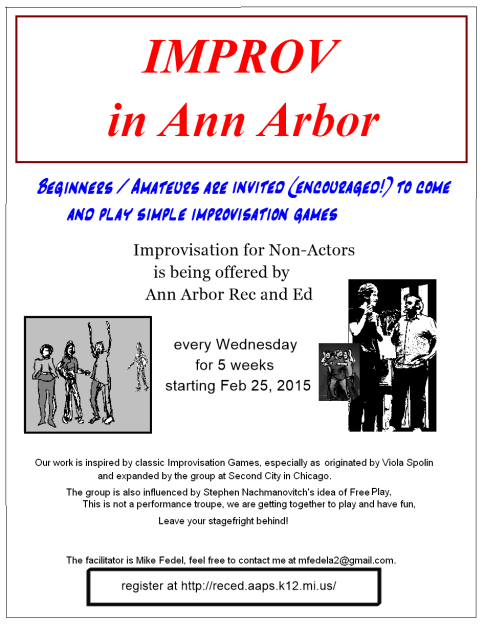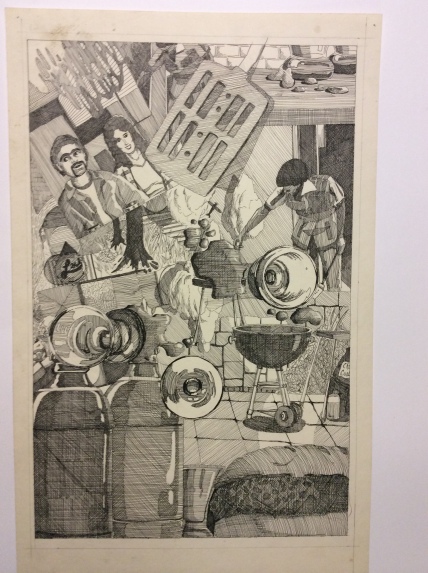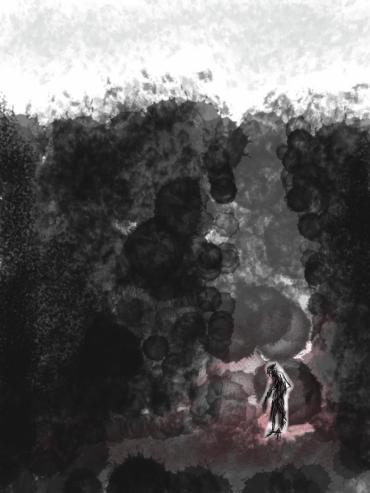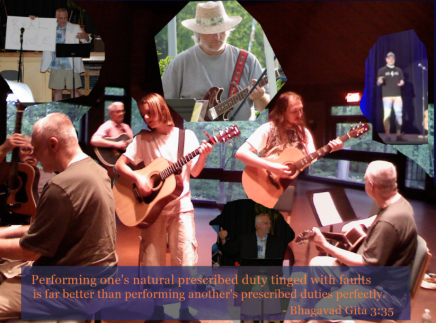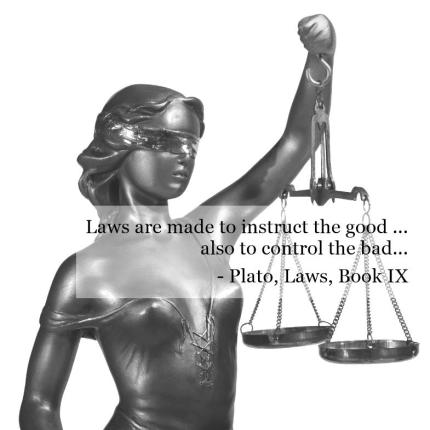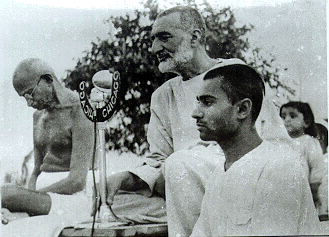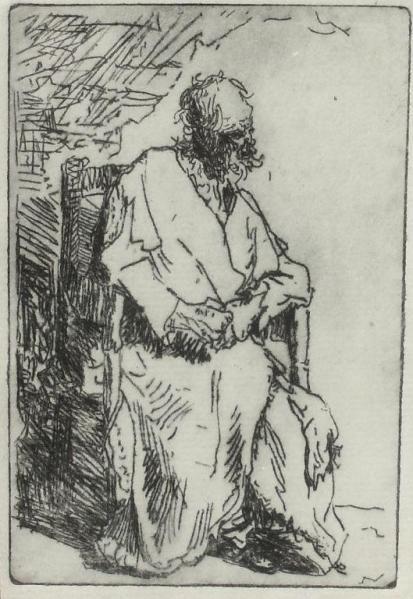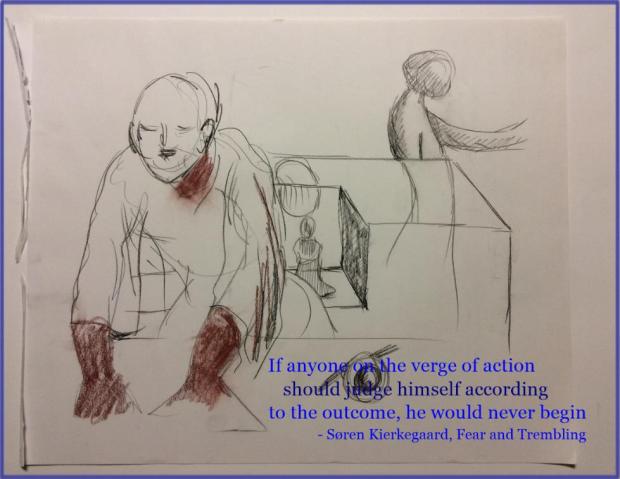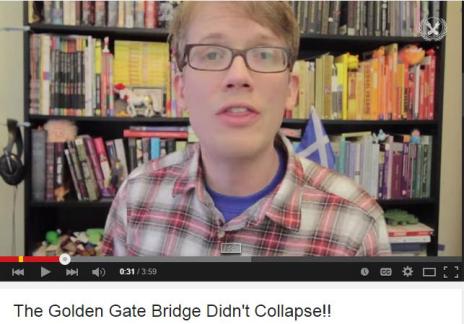It’s been a busy week – I haven’t posted since the 16th. (I never made a commitment to myself to “post everyday”, but it was a fun run.)
Since the 16th, though, I’ve finished a draft of my MA project paper and finished assembling the book of poetry I’ve been working on since the end of summer. I have a copy with me, formatted for 6″X9″ with page breaks and fonts. I am going back over to see if I like the sequence of the poems and whether I am going to include any pictures (drawings and/or photos). Then, off to the editor.
I’m working on some music for an Indegogo promo for Pointless Pub and starting to pull together the setlist for our May Rotary Club gig “Lost in Space”.
But, the big news is that my Improv for Non-Actors class at Ann Arbor Rec and Ed starts tomorrow night. It’ll be about the sixth or seventh go-round and it’s always a lot of fun. Seeing new faces and some repeats and opening up space for them to just relax and have a good time is a real treat.
